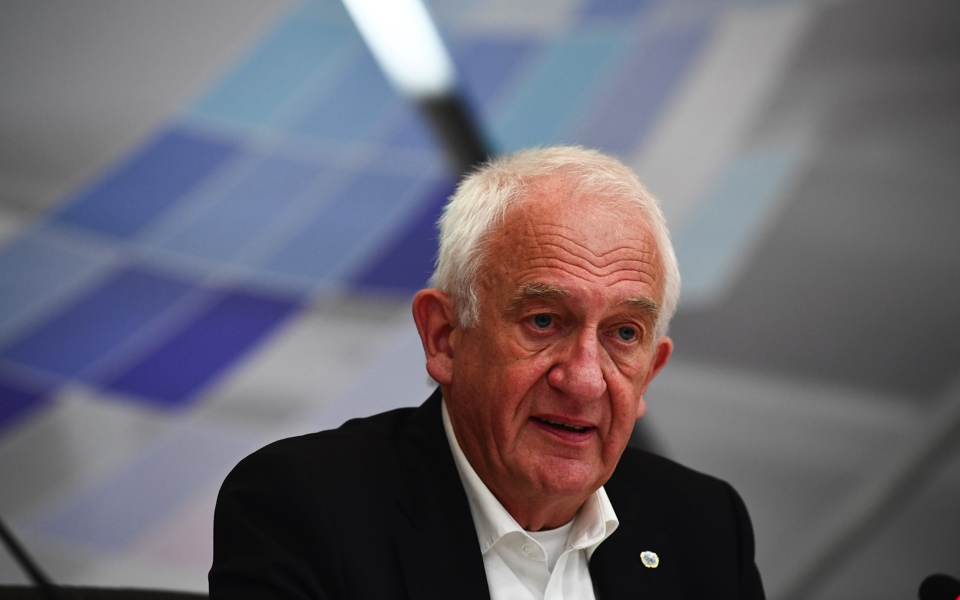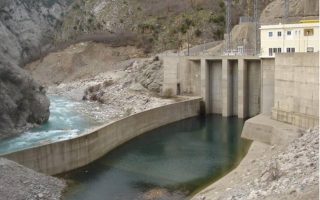Prevention key to batting fires, expert stresses

Plans for Greece's new civil protect mechanism appear to put too much emphasis on fighting fires rather than preventing them, warns Professor Johann Georg Goldammer, director of the Global Fire Monitoring Center based at Freiburg University and senior scientist at the Max Planck Society for Chemistry, Biogeochemistry Department, who was invited by the previous government to lead a special committee in the wake of the deadly fire that devastated the village of Mati in eastern Attica in July 2018.
Kathimerini reached out to Goldammer as Greece's recently elected government prepares a new civil protection plan, which is currently in the public consultation phase.
Does the draft law on civil protection follow your recommendations as head of the special committee?
The draft law is in Greek and I was only sent an outline in English but I have discussed it with other members of the committee. It appears to put the emphasis almost exclusively on fire suppression. The legislation does not include any long-term provisions for joint and coordinated cross-sectoral approaches for fire prevention planning and public information and awareness. The critical parameters of the issue – like forest management, prevention measures, rehabilitation of burnt areas, farming and livestock farming, regional and urban development, civil society participation – are absent from the draft law.
What were your recommendations?
The independent committee's findings were presented to all of the political parties. The main idea of our proposal was for the creation of an independent authority that would be tasked with wildfire management. This organization would work together with other competent agencies in an advisory, coordinating and executive capacity on issues of wildfire management and its mission would be to design and oversee the operational management of wildland fires. Without such a mechanism, it is impossible to accomplish the task of effective prevention or create the necessary climate of cooperation between all of the agencies involved.
Before the summer elections, a landmark in our report was achieved with the signing of a joint ministerial decision in May 2019 regulating the cooperation and coordination between the forestry and fire services for preventing and suppressing fires.
The new government is focusing on bolstering the structures of the Civil Protection Authority and the Fire Service. My committee did not see any changes geared toward our recommendations for a comprehensive approach to wildfire management.
In the meantime, the international community acknowledges that the approach we recommend for Greece needs to be applied in other parts of the world. The government of Portugal founded a similar wildfire management organization in 2018. In November 2019, the 7th International Wildland Fire Conference that was held in Campo Grande in Brazil and attended by experts from all over the world issued an announcement with proposals that were almost identical to those presented in our report. And earlier this month, a representative of our committee and I attended a meeting of the Organization for Economic Cooperation and Development (OECD). The participants agreed that reducing the fire risk via prevention should be given priority over efforts to contain and suppress them.
What causes fires today? Has the fire season become longer?
Apart from changes in land use and the use of fire as a traditional management tool in many parts of the world, climate change is also exacerbating the situation. We are experiencing more serious and protracted droughts, which are often linked to long heat waves. This has lengthened the wildfire season. In California, for example, the wildfires usually took place between May and September. Because of changing weather conditions, they are coming earlier and earlier. The fires in Australia in 2019 also started a lot earlier than normal, in September instead of November, as was the case the previous years. A similar trend is emerging in Central Europe as well, including Germany. This means that wildfire management – that is measures for prevention and suppression – needs to be mobilized almost all year round.
Your committee has been critical of the fact that most of the means for fighting fires are controlled by the military. Does this mean that you are opposed to the idea of a joint European firefighting air force?
All wildfires are controlled and suppressed on the ground and require a well-trained and coordinated firefighting mechanism that knows the local conditions of any given area. However, particularly strong fires may require airborne firefighting support. It makes sense, therefore, for a common airborne fleet to be created in order to support countries in need rather than every member-state having to develop its own fleet.
The European Commission, via the EU Civil Protection Mechanism, is developing new plans for the exchange of airborne resources and means in three regions: Southern, Central, Eastern and Northern Europe. The efficiency and effectiveness of the joint airborne air force will depend on the development and implementation of operational rules and protocols.





